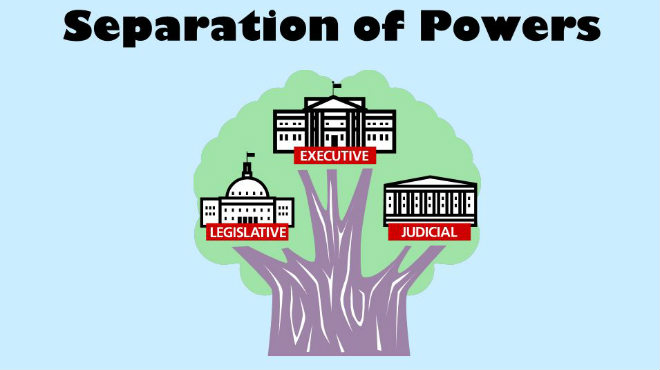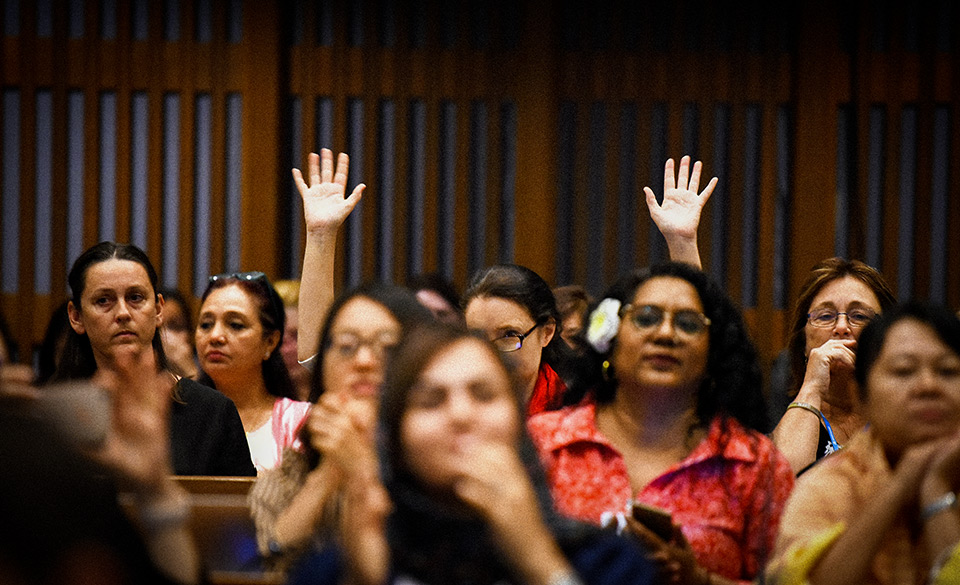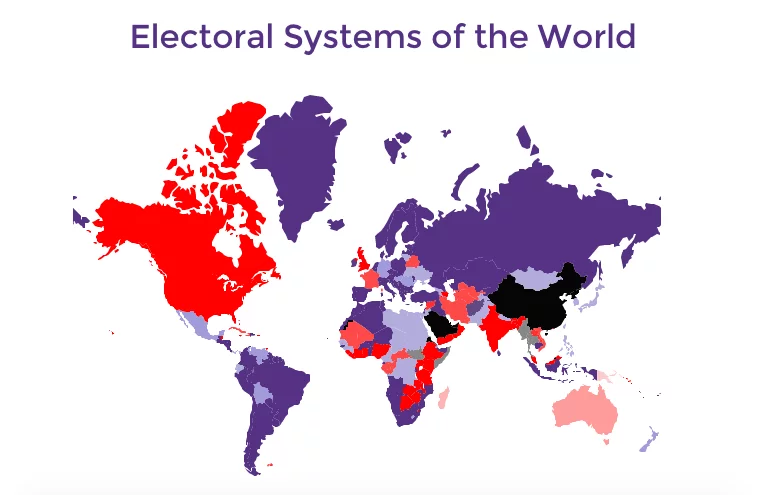Separation of Powers in Democracy - Key to Governance
Explore how the concept of separation of powers in democracy plays a vital role in effective governance. Learn why it's crucial for a stable government

The Crucial Pillar of Democracy: Understanding the Concept of Separation of Powers
In the tapestry of democracy, there exists a fundamental principle that is often heralded as one of its cornerstones ? the concept of the separation of powers. Envisioned by luminaries like Montesquieu, this concept has transcended the ages to become a defining feature of democratic governance worldwide. At its core, the separation of powers seeks to safeguard individual liberties, prevent the concentration of power, and ensure a system of checks and balances within government. In this comprehensive exploration, we will delve deep into the essence of this principle, its historical underpinnings, and its pivotal role in fostering robust democratic systems.
Historical Roots of the Separation of Powers
The origins of the separation of powers can be traced back to ancient civilizations. In ancient Greece, for instance, there existed the notion of "isonomia," which championed the idea of equal laws for all citizens. However, it was during the Enlightenment period that this concept began to take more concrete form and gain prominence.
One of the most influential proponents of the separation of powers was the French philosopher Charles-Louis de Secondat, Baron de Montesquieu. In his seminal work, "The Spirit of the Laws" (1748), Montesquieu articulated the idea that governmental power should be divided among distinct branches ? the executive, legislative, and judicial ? each with its own set of responsibilities and limitations. He argued that this separation would act as a safeguard against tyranny and promote liberty.
The Three Branches of Government
To grasp the essence of the separation of powers, one must understand the roles and functions of each branch of government:
The Legislative Branch: This branch is responsible for making and enacting laws. Typically, it consists of a parliament or congress, where elected representatives debate and pass legislation. It acts as the voice of the people, ensuring that their concerns and aspirations are translated into laws that govern society.
The Executive Branch: The executive branch is tasked with implementing and enforcing the laws passed by the legislative branch. It includes the head of state (e.g., a president or monarch) and the government, which is composed of ministers or secretaries responsible for various aspects of governance. The executive branch is responsible for the day-to-day administration of the state.
The Judicial Branch: The judicial branch is responsible for interpreting and applying the laws. It comprises courts and judges who ensure that the laws are enforced fairly and justly. The judiciary acts as a check on the other branches by reviewing the constitutionality of laws and government actions.
Roles and Functions in a Democratic System
Now that we understand the three branches let's delve deeper into their roles and functions in a democratic system:
Legislative Branch: In a democracy, the legislative branch is typically directly elected by the people. It is responsible for representing the will of the electorate, debating and passing laws, and overseeing the executive branch's actions. Through the power of the purse, it controls government spending, ensuring accountability and fiscal responsibility. Furthermore, it can investigate allegations of wrongdoing within the executive branch through committees and hearings, upholding transparency and the rule of law.
Executive Branch: The executive branch is responsible for implementing laws and governing the nation. The head of state and government are elected or appointed in accordance with the democratic process. They carry out policies and decisions that align with the laws established by the legislative branch. Importantly, they can veto legislation, providing a check on the legislature's power, while also serving as the commander-in-chief of the armed forces, responsible for the nation's security.
Judicial Branch: The judicial branch ensures that laws are interpreted and applied impartially. It safeguards individual rights and liberties by adjudicating disputes, ensuring due process, and upholding the rule of law. Judges are typically appointed to serve for life or long terms, insulating them from political pressures and ensuring their independence. This independence is vital in preventing the abuse of power and protecting the rights of citizens.
The Role of Checks and Balances
Central to the concept of the separation of powers is the notion of checks and balances. This means that each branch of government has the ability to limit the powers of the other branches, preventing any single branch from becoming too powerful or infringing on the rights of citizens. Some key examples of checks and balances include:
Legislative Oversight: The legislative branch can oversee and investigate the actions of the executive branch through hearings and inquiries, impeach the president or other officials for misconduct, and control the budget, limiting the executive's ability to implement policies.
Executive Checks: The executive branch can veto legislation passed by the legislature, appoint judges, and issue executive orders. However, these actions are subject to judicial review for constitutionality.
Judicial Review: The judicial branch can declare laws passed by the legislature or actions taken by the executive branch unconstitutional, effectively nullifying them. This power ensures that the actions of the other branches adhere to the constitution and protect individual rights.
Importance in Democratic Governance
The separation of powers plays a pivotal role in democratic governance for several key reasons:
Safeguarding Against Tyranny: By dividing power among different branches, the separation of powers prevents any single individual or group from accumulating too much power, which could lead to authoritarianism or tyranny. This diffusion of power promotes stability and prevents the abuse of authority.
Protecting Individual Rights: The judicial branch, in particular, serves as a guardian of individual rights and liberties. It ensures that the laws and actions of the government do not infringe upon citizens' fundamental freedoms.
Promoting Accountability: The system of checks and balances encourages transparency and accountability within government. Elected officials are answerable to the legislature and the electorate, and their actions can be reviewed and challenged in the courts.
Fostering Effective Governance: Each branch of government can focus on its specific functions, leading to more efficient and effective governance. The legislative branch can make laws, the executive branch can implement policies, and the judicial branch can interpret and apply the law.
Encouraging Debate and Compromise: In democratic systems, the separation of powers often leads to constructive debate and negotiation among the branches. Compromises are reached through this dialogue, reflecting the diverse interests and values of the population.
Challenges and Criticisms
While the separation of powers is a cornerstone of democracy, it is not without challenges and criticisms:
Gridlock and Inefficiency: The system of checks and balances can sometimes lead to gridlock and slow decision-making. When branches are unable to reach consensus, vital legislation may be delayed or blocked.
Partisanship: In highly polarized political environments, branches may prioritize party loyalty over the public interest. This can result in obstructionist behavior and a breakdown in the system's ability to function effectively.
Imbalance of Power: Despite the intent to balance power, some argue that power can still become imbalanced due to factors like a strong executive branch or a politicized judiciary.
Complexity: The separation of powers can be complex and may lead to confusion or disputes over the respective roles and responsibilities of each branch.
the constitutions of democracies worldwide, this principle remains as relevant today as it was during its inception. It is through the careful orchestration of the legislative, executive, and judicial branches that democratic societies can navigate the complexities of governance while preserving individual rights and freedoms.
The separation of powers is not a static concept but one that evolves and adapts to the changing needs and challenges of societies. As democratic systems expand and mature, the interplay between these branches becomes increasingly nuanced. In modern democracies, we often witness the need for cooperation among branches to address pressing issues such as economic crises, national security threats, or global pandemics. The balance between checks and balances and the imperative of effective governance can sometimes be a delicate one.
Furthermore, it is essential to recognize that the separation of powers does not exist in isolation. It operates within a broader context of constitutional frameworks, civil society, a free press, and an engaged citizenry. These elements work in concert to uphold the principles of democracy and ensure that the separation of powers remains robust and effective.
In recent years, the concept of the separation of powers has faced new challenges and questions, particularly in the digital age. Issues like online misinformation, cyber threats, and the power of tech giants have raised important debates about how the principles of separation of powers apply to the digital realm. Governments, legislatures, and courts are grappling with how to regulate and oversee these new domains without infringing upon individual freedoms.
Moreover, the concept of separation of powers is not exclusive to national governments. It also extends to the division of authority between different levels of government, such as federal and state governments in the United States or regional and national governments in Europe. This decentralized approach to governance ensures that power is distributed not only horizontally but also vertically, further safeguarding against abuses of power.
The concept of the separation of powers remains a cornerstone of democratic governance, serving as a bulwark against tyranny, a protector of individual rights, and a promoter of effective governance. It reflects the wisdom of ages past and the ongoing efforts of societies to strike the delicate balance between power and accountability. As we navigate the complexities of the modern world, the separation of powers will continue to be a guiding principle that shapes the destiny of democracies and upholds the ideals of freedom, justice, and the rule of law. Its enduring relevance underscores its pivotal role in shaping the course of democratic nations and societies for generations to come.
What's Your Reaction?












